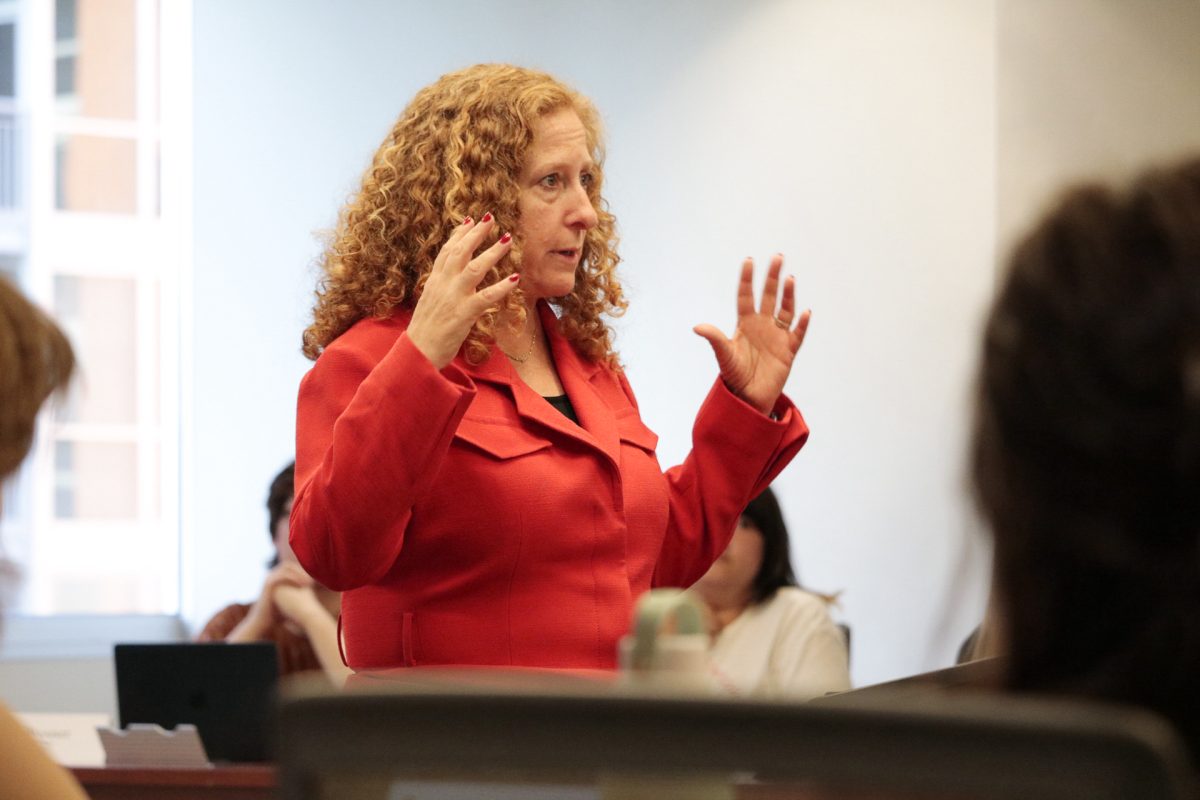While most University of Wisconsin students’ health care is covered under their parents’ insurance plan, some students find themselves uninsured with limited options.
For many, the Student Health Insurance Plan is the easiest and cheapest place to turn.
SHIP is a comprehensive health plan tailored to UW students. It expands the services covered by University Health Services by providing primary care, urgent after-hours care, emergency room care, ambulance services, women’s health care, dermatology services, immunizations, crisis intervention, counseling and specialist services.
The insurance plan also has a contraceptive benefit, covering all birth control costs for its members.
SHIP provides prescription drug benefits up to $1,250 per year, as well as a maximum benefit of $1 million, according to Richard Simpson, manager of SHIP.
Annually, the cost of SHIP for domestic students age 25 and under is $1,476. For an international student, the health plan costs $1,344.
Students are also responsible for paying relatively small deductibles and co-payments for drugs and medical services.
Although the plan is comprehensive, there are some conditions to coverage. The domestic SHIP plan only offers complete coverage for services rendered through UHS. While UHS contracts with Mertier and UW Health for services they don’t offer, only 80 percent of the costs are covered after the deductible.
SHIP only covers 60 percent of the cost after the deductible for all other health care providers outside of the network. The plan does cap out of pocket costs — the deductible plus coinsurance — at $3,000 per student or $6,000 per family for combined in-network and out-of-network costs.
Since it is mandatory for international students to become members of SHIP, co-pay is lower and their overall benefits are “superior” to domestic students’, Simpson said.
“It’s a visa requirement, and UW-Madison — like almost all institutions in the United States –has chosen to follow the federal mandates,” Simpson said. “Also, we will expand upon the insurance so we don’t have international students and scholars left in the United States with medical bills, which would obviously be a burden for them, force them to go home to their home county or leave bills for us to absorb into the U.S. health care system, which is another thing we don’t want.”
Of the approximately 4,000 enrollees in SHIP, Simpson said 55 percent are international students, while 45 percent are domestic.
UHS benefits, such as the HPV, meningitis and travel vaccinations and physical therapy, are free for SHIP members, Simpson said.
However, as the plan is required for them, some international students are not fully satisfied with the services provided by SHIP and the cost of the program.
UW sophomore Yunjia Zhong, an international student from China, said SHIP may be priced below the average cost of health insurance, but the quality of services is not exceptional. Compared to health care in his hometown of Chengdu in the Sichuan province, many health services are not provided under SHIP.
“For the annual health checks, they reduce the amount of checks they can do for you and are simple (in their procedures),” Zhong said. “Annual health checks [in my hometown contain] a lot of stuff like a blood check or X-ray check, but when I did the annual health check at SHIP, they just checked around my body and asked questions. They are saving I guess.”
According to Zhong, his greatest problem with SHIP is that regular dental check-ups are not included under the plan. Last month, he had bad toothaches which made him feel sick, yet he was not able to go to a dentist because it was not covered.
However, if given the option, Zhong would not go off SHIP because a university affiliated health program saves him a lot of time searching for another health insurance plan and comparing prices.
“I remember [SHIP] being really expensive,” said Stephanie Smiley, spokesperson for the Wisconsin Department of Health Services. “I couldn’t afford that when I was in school, but it is an option. For people who can afford the coverage, it is a better option than not having coverage. Many bankruptcies are incurred by medical situations.”
An alternative to SHIP for UW students is the BadgerCare Plus Core Plan, a health care plan that provides many of the same services as SHIP, plus dental care, Smiley said.
Under the Core Plan, a doctor’s visit could have a co-payment from 50 cents to $3 per service and all co-payments are limited to $30 per year, Smiley said, adding there are no co-payments for emergency services or preventive care for people with low incomes.
The label “low income” is assigned to single people who make below $1,805 per month and approximately $2,430 for a married couple, according to Smiley.
Only generic drugs are covered on the plan and co-payments for drugs are $5 per drug with a limit of $20 per month, per provider, Smiley said. After the $20 limit, the plan covers additional costs.
The Core Plan began accepting applicants this year. However, enrollment, which was opened to the public this June, is already closed because of too many enrollees. While the program can only serve 50,000 to 60,000 people, the plan received approximately 76,000 applications since June.
The plan is appealing to students because it costs only $60 per year.
SHIP, on the other hand, will take in an unlimited number of applicants and its insurance is effective immediately, Simpson said. There are enrollment periods at the beginning of each semester, but if students lose insurance through their parents’ policy, they can join SHIP and their premium is prorated.
“It is possible to buy plans that are cheaper than SHIP, but we advise students to be wary and read through the benefits because they don’t find out about the benefit limitations until they try and use it,” Simpson said.












